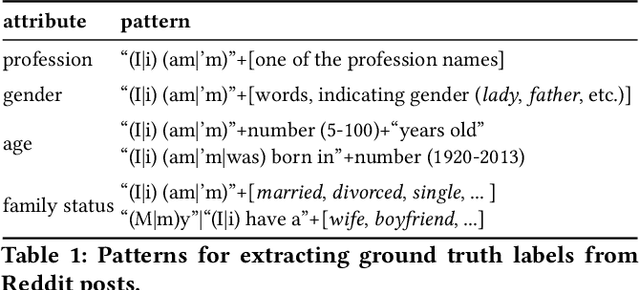Anna Tigunova
Recommendations by Concise User Profiles from Review Text
Nov 02, 2023Abstract:Recommender systems are most successful for popular items and users with ample interactions (likes, ratings etc.). This work addresses the difficult and underexplored case of supporting users who have very sparse interactions but post informative review texts. Our experimental studies address two book communities with these characteristics. We design a framework with Transformer-based representation learning, covering user-item interactions, item content, and user-provided reviews. To overcome interaction sparseness, we devise techniques for selecting the most informative cues to construct concise user profiles. Comprehensive experiments, with datasets from Amazon and Goodreads, show that judicious selection of text snippets achieves the best performance, even in comparison to ChatGPT-generated user profiles.
Listening between the Lines: Learning Personal Attributes from Conversations
Apr 24, 2019



Abstract:Open-domain dialogue agents must be able to converse about many topics while incorporating knowledge about the user into the conversation. In this work we address the acquisition of such knowledge, for personalization in downstream Web applications, by extracting personal attributes from conversations. This problem is more challenging than the established task of information extraction from scientific publications or Wikipedia articles, because dialogues often give merely implicit cues about the speaker. We propose methods for inferring personal attributes, such as profession, age or family status, from conversations using deep learning. Specifically, we propose several Hidden Attribute Models, which are neural networks leveraging attention mechanisms and embeddings. Our methods are trained on a per-predicate basis to output rankings of object values for a given subject-predicate combination (e.g., ranking the doctor and nurse professions high when speakers talk about patients, emergency rooms, etc). Experiments with various conversational texts including Reddit discussions, movie scripts and a collection of crowdsourced personal dialogues demonstrate the viability of our methods and their superior performance compared to state-of-the-art baselines.
 Add to Chrome
Add to Chrome Add to Firefox
Add to Firefox Add to Edge
Add to Edge